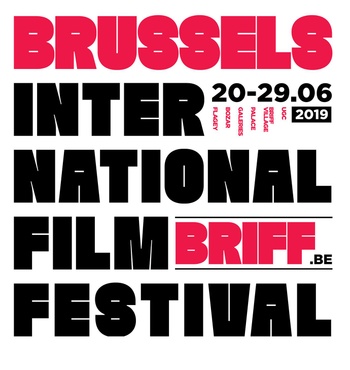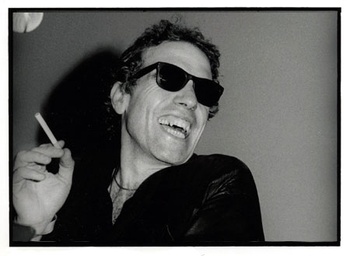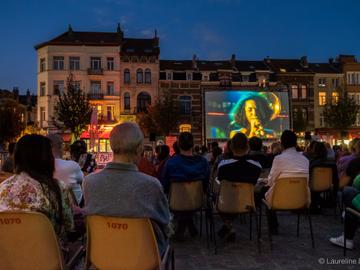The Brussels International Film Festival’s headliner is a Buddhist who recently became a father, but in the 1990s, he made some of the darkest, down-and-dirty films about New York. The quasi-mythical Abel Ferrara is presenting the intimate, semi-autobiographical film Tommaso. “It’s impossible to use heroin and meditate properly.”
_Kris_Dewitte.jpg?style=W3sianBlZyI6eyJxdWFsaXR5Ijo3MH19LHsicmVzaXplIjp7ImZpdCI6Imluc2lkZSIsIndpZHRoIjoxMjk2LCJoZWlnaHQiOjg2NCwid2l0aG91dEVubGFyZ2VtZW50Ijp0cnVlfX1d&sign=7522f7da0924296863247db1a6e9d3456bf7d1878fc8d3601d8570f9b355a085)
© Kris Dewitte
| Abel Ferrara with his wife and daughter. Together they have made the film Tommaso.
BRIFF is bringing cult director Abel Ferrara to Brussels: ‘I am happy still to be alive'
Who is Abel Ferrara?
- Abel Ferrara is now a 67-year-old Buddhist with an apartment in Rome.
- He makes documentaries about Roman squares (Piazza Vittorio) and feature films about Pasolini (Pasolini), himself (Tommaso), Dominique Strauss-Kahn (Welcome to New York), and the end of the world (4:44 Last Day on Earth).
- He became very controversial in 1979 and 1981 for the bloody cult films The Driller Killer and Ms. 45.
- He peeked in the 1990s with controversial, dark urban films about sinners. The Christopher Walken films King of New York, The Addiction, and The Funeral are good. His most infamous film is Bad Lieutenant, starring Harvey Keitel.

In The Driller Killer, a tortured artist murders people with a drill. In The Addiction, a philosophy student is as addicted to blood as a junkie is to crack. In Bad Lieutenant, Harvey Keitel commits more sins in half an hour than everyone in the hellhole Brussels does in a whole year. Meeting a young nun who has forgiven her rapists leads to a conversation with the crucified Christ.
Especially in the 1990s, Abel Ferrara caused a furor with his dark but exciting cult films about the depravity of New York and redemptive Catholicism. Those glory days (creatively at least) are long gone, but Ferrara is still a popular director.
In 2014, he presented Pasolini at the Venice Film Festival, a portrait of the murdered Italian poet-filmmaker-Marxist. Last month, the Cannes Film Festival screened Tommaso, an intimate portrait of an American film director who has kicked his drug habit and is trying to enjoy a new life in Rome with a much younger wife and a baby daughter.
Despite regular AA meetings and having learned breathing techniques, Tommaso finds it increasingly difficult to keep his anger and frustration under control. Ferrara shot the film in his apartment in Rome with his wife and his daughter, but he refuses to describe the film as an autobiography. “The film alternates between fiction and reality. That is not important. It doesn’t matter if the roots of a story are real or imagined. The only important thing is the truth within the film.”
In what ways is Tommaso, brilliantly played by Willem Dafoe, different than Abel Ferrara?
Abel Ferrara: Tommaso is not a document but a movie. There are some similarities between me and Tommaso, but Willem made at least as many contributions to this character. In the film, you see him teaching the students in my acting classes, but his methods are nothing like mine. He approaches things very physically, which suits him very well. In addition to all the talents that the bastard already has, he is also an amazing yogi. I’m not.
Why did you cast your wife and child if you didn’t want us to think that Tommaso is about you?
Ferrara: I didn’t hesitate for a second to film my wife and daughter. I had just finished making a few documentaries and didn’t see the point of going through a whole casting process and ending up with an actress and a child who were complete strangers. Willem Dafoe and I have worked together six times and he is my daughter’s godfather, so they didn’t even have to act because they already know and like each other.
“I didn’t hesitate for a second to film my wife and daughter. I didn’t see the point of going through a whole casting process and ending up with complete strangers”
Just like Dafoe, you are a practicing Buddhist. Does that influence your work? You smuggled a video of the Tibetan lama Thubten Yeshe into the film.
Ferrara: Buddhism helped me to sort out my life, and it is impossible for me to make a clear distinction between my life as a person and my life as an artist. It is not that I put on overalls and go to work in a petrol station. Whether I am shooting a film, editing, planning, or conceiving, I am always the same.
Buddhism is a great solace to me. It is all about the idea that we are not born to suffer. Ten or twelve years ago I really immersed myself in Buddhism for the first time. I studied and worked with a master. The only problem was that it made no sense because I was still taking drugs. It’s impossible to use heroin and meditate properly. That’s not how it works. When I swore off drink and drugs seven years ago, it became really serious.
The Brussels International Film Festival is presenting Tommaso, but it is also screening a retrospective of your work. How do you look back at the films you made twenty years ago?
Ferrara: I occasionally see a few fragments here and there, but it rarely happens that I watch one of my old films from beginning to end. I prefer to make new films. Last month, the MoMA in New York organized a retrospective of my work. I thought it was crazy: I am still one of those filmmakers from downtown New York. If you had told us then that one day our work would be screened in a fancy museum, we would have laughed in your face. The Driller Killer in a museum? Seriously? (Laughs)

Abel Ferrara, N.Y. 1990: The Brussels International Film Festival’s headliner is a Buddhist who recently became a father, but in the 1990s, he made some of the darkest, down-and-dirty films about New York.
You have many devoted fans, but you never really got a big break. Do you regret anything?
Ferrara: That is an irrelevant question. I did what I did. You can’t change the past. You have to appreciate what you have and focus on your possibilities in the future. I am so happy still to be alive and that I can still make films after all these years. That is a gift for which I am enormously grateful.
You are instantly associated with New York, but you have lived in Rome for several years. How different is your life there?
Ferrara: My life is different but that is not due to the big differences between Rome and New York. The big difference is that I am sober now. That was rarely the case in New York. I grew up in the Bronx. You can never get that out of your system. I will always feel connected to that city.
But the city has changed beyond all recognition. New York has always been a city that changes quickly and drastically. New York in 1980 was nothing like New York in 1975. And in the 1990s it was very different than in the 1980s. 9/11 was a turning point. I couldn’t care less about the New York of Donald Trump and the real estate tycoons.
They act as though they own the place. Everybody has to work 24 hours a day, seven days a week just to pay the rent. I think that is terrible. It is an unnatural situation that is completely unsustainable. Manhattan has become fucking Dubai: a playground for billionaires. Everybody else is fucked, doomed to work until they drop. That’s not a life, it’s exploitation. I am very happy to live in Europe now.
BRIFF 20/6 > 29/6, various cinemas, www.briff.be
TOMMASO + Meeting with Abel Ferrara: 23/6, 20.00, Galeries
Read more about: Brussel , Film , BRIFF , Abel Ferrara




Fijn dat je wil reageren. Wie reageert, gaat akkoord met onze huisregels. Hoe reageren via Disqus? Een woordje uitleg.